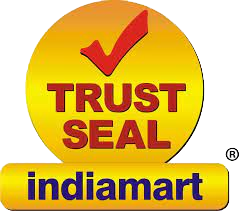Description
Our products support diverse sectors within the textile and garment industry, providing essential materials and solutions for clothing manufacturing, home textiles, fashion design, textile printing and dyeing, and textile recycling.
The textile and garment industry comprises various sectors crucial for producing a wide range of textile products. Clothing manufacturing involves the mass production of garments, necessitating efficient production processes and quality materials. Home textiles encompass a variety of household textile products such as bedding and towels, emphasizing comfort and style. Fashion design integrates creativity and innovation to produce trendy and stylish clothing and accessories. Textile printing and dyeing enhance fabrics with vibrant colors and patterns, catering to diverse consumer preferences. Textile recycling promotes sustainability by repurposing textile materials, reducing waste, and conserving resources. Across these subsectors, our products, including safety gloves, cotton waste, lint wiping cloth, soap oil, phenyl, and cloth bags, play crucial roles in ensuring worker safety, maintaining cleanliness, and supporting efficient production processes.
1.Clothing Manufacturing:
- Safety gloves: Protect workers during sewing and cutting processes.
- Cotton waste: Used for padding and insulation in garments.
- Lint wiping cloth: Clean sewing machines and workstations.
- Soap oil and phenyl: Maintain cleanliness in manufacturing facilities.
- Cloth bags: Transport finished garments for packaging and distribution.
2.Home Textiles:
- Safety gloves: Ensure worker safety during fabric cutting and sewing.
- Cotton waste: Utilized for filling pillows, cushions, and quilts.
- Lint wiping cloth: Clean textile manufacturing equipment and surfaces.
- Soap oil and phenyl: Maintain cleanliness in home textile production facilities.
- Cloth bags: Package and transport finished home textile products.
3.Fashion Design:
- Safety gloves: Protect hands during fabric cutting and handling.
- Cotton waste: Used for creating fabric samples and prototypes.
- Lint wiping cloth: Clean design tools and work surfaces.
- Soap oil and phenyl: Maintain cleanliness in design studios and workshops.
- Cloth bags: Transport fabric swatches and design materials.
4.Textile Printing and Dyeing:
- Safety gloves: Protect hands during dyeing and printing processes.
- Cotton waste: Used for absorbing excess dye and cleaning dyeing equipment.
- Lint wiping cloth: Clean printing screens and dyeing machines.
- Soap oil and phenyl: Maintain cleanliness in printing and dyeing facilities.
- Cloth bags: Transport dyed and printed fabrics for finishing.
5.Textile Recycling:
- Safety gloves: Protect hands during sorting and processing of recycled textiles.
- Cotton waste: Recycled into new textile products or used for padding and insulation.
- Lint wiping cloth: Clean recycling machinery and equipment.
- Soap oil and phenyl: Maintain cleanliness in textile recycling facilities.
•Cloth bags: Transport recycled textile materials for further processing


